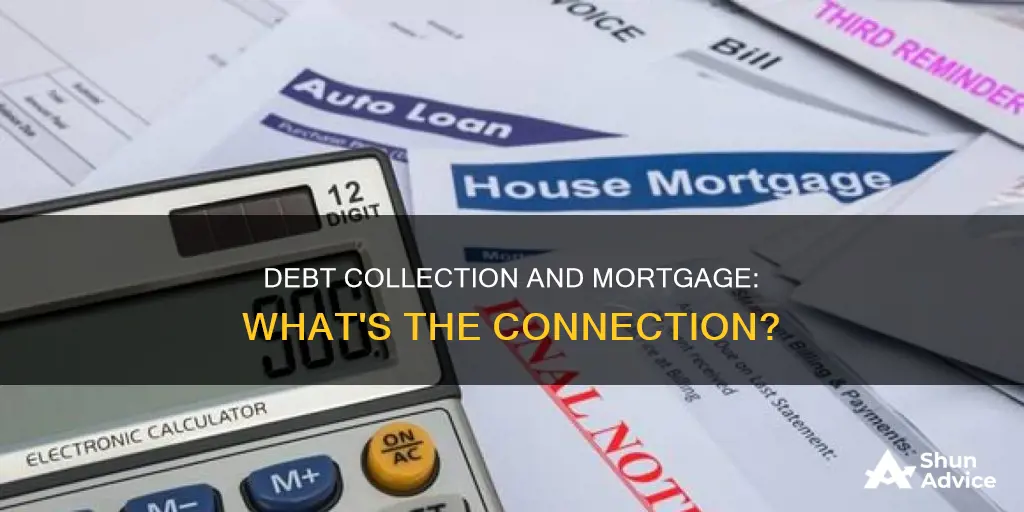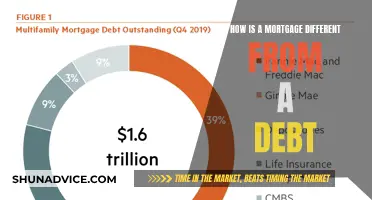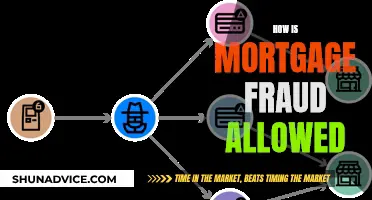
Debt collection is the process by which creditors attempt to collect money owed by individuals or businesses. Debt collectors are hired when creditors are unable to collect a debt and want to recoup the money owed to them. Debt collection agencies are prohibited from harassing or deceiving consumers, and consumers have important rights under the Fair Debt Collection Practices Act (FDCPA), which applies to consumer debts, such as mortgages, credit cards, car loans, student loans, and medical bills.
| Characteristics | Values |
|---|---|
| Debt collection process initiation | Debt collection is initiated when a borrower defaults on a debt. |
| Debt collection agencies | Creditors hire debt collection agencies to recover money owed to them. Debt collectors are paid a flat fee or a percentage of the amount they collect. |
| Debt validation letter | Debt collection agencies must send a written notice called a debt validation letter within five days of their first attempt to contact the debtor. |
| Debt collection communication | Debt collectors can contact debtors via mail, phone, or in-person. They can also contact the debtor's family, friends, and neighbours to confirm contact information. However, they are prohibited from harassing or deceiving debtors and must follow specific guidelines under the Fair Debt Collection Practices Act (FDCPA). |
| Debt dispute | Debtors have the right to dispute the debt within 30 days of receiving the validation information. If the debt is disputed, the collector must stop collection efforts until they can provide written verification. |
| Legal action | If the debt remains unpaid, debt collectors can initiate legal action, which may result in wage garnishment, liens on property, or bank account freezes. |
| Debt settlement | The debt collection process is complete when the debt is satisfactorily repaid or settled with the creditor or debt collection agency. |
What You'll Learn

Debt collection agencies
If you are contacted by a debt collection agency, they must send you a written notice called a debt validation letter within five days of their first attempt to contact you. This letter must include how much you owe, the name of your original creditor, and a statement of your right to dispute the debt. You have the right to ask for additional information about the debt, and you can dispute it if you believe you do not owe the money or that the amount is incorrect. If you do dispute the debt within 30 days of receiving the validation information, the debt collector must send you verification of the debt.
If you do not want a debt collector to contact you, you can mail a letter to the collection company asking them to stop. Keep a copy of this letter for your records, and consider sending it by certified mail so that you can be sure the collector received it. Once the collection company gets your letter, they can only contact you to confirm that they will stop contacting you or to inform you of any legal action they plan to take.
Understanding Mortgage Estimation: Key Factors and Calculations
You may want to see also

Debt validation letter
Debt collection is the process by which a company or agency attempts to collect money owed by borrowers. Debt collectors are legally required to send a debt validation letter to the borrower within five days of their first attempt to make contact. This is to help the borrower determine whether the debt is legitimate and that the details of the financial obligation are accurate.
A debt validation letter is a notice from a debt collector that contains information about the debt they are trying to collect. It outlines what the debt is, how much the borrower owes, and to whom, as well as when the debt needs to be paid. It also includes a statement of the borrower's right to dispute the debt. This is important because errors in debt collection are common, and it is possible that the debt does not actually belong to the borrower.
Debt collectors are required by the Fair Debt Collection Practices Act (FDCPA) to send this written debt validation notice. The FDCPA is a federal law designed to protect consumers from predatory debt collection practices. It does not apply to business debts. The FDCPA also limits how and when a debt collector can contact a borrower about covered debts. For example, debt collectors are prohibited from harassing or deceiving consumers, and they may not contact a borrower at an unusual time or place, or when/where the borrower cannot receive personal communications. Debt collectors are also prohibited from publicly contacting a borrower about their outstanding debt on social media, although they can send private messages unless the borrower requests that they stop.
If a borrower believes that they do not owe the debt, they should tell the debt collector. The borrower can send a debt verification letter to the collector to dispute information found in the validation notice. This must be done within 30 days of receiving the validation notice, otherwise the collector will assume the debt is legitimate. If the borrower does not respond within the 30-day dispute period, it can become more difficult to assert their rights once the process moves forward. The borrower can request certain information in their debt verification letter, such as the name and address of the collection agency, the collection agency's license to collect in their state, and the original creditor's name and address. If the borrower has already paid off the debt, it can be helpful to include documentation proving payment. Sample letters are available from the Consumer Financial Protection Bureau (CFPB) to use as a starting point.
Understanding Mortgage Payments: How High is Too High?
You may want to see also

Legal action
Debt collection agencies are prohibited by law from harassing or deceiving consumers. Debt collectors may not contact you at unusual times or places, or when/where you cannot receive personal communications. For example, an agency must not call you at work if you report that you cannot take personal calls, and they can't call you before 8 am or after 9 pm. Debt collectors are also prohibited from publicly contacting you about your debt on social media.
If you are being subjected to harassing, abusive, or fraudulent debt collection tactics, you can notify the collector in writing, and they must stop. You can also mail a letter to the collection company and ask them to stop contacting you. Keep a copy for yourself, and consider sending the letter by certified mail and paying for a "return receipt" so you have proof of receipt. Once the collection company gets your letter, they can only contact you to confirm they will stop contacting you in the future, or to tell you they plan to take specific legal action, such as filing a lawsuit.
If you believe you do not owe the debt, you should tell the debt collector. You can ask the collection company what its records show about when you last made a payment, and then research your state's statute of limitations on your debt. If the statute of limitations has run out, your unpaid debt is time-barred, and you do not have to pay. However, in some states, if you acknowledge in writing that you owe the debt, the clock resets and a new statute of limitations period begins.
If you are facing legal action, consider talking to an attorney. If an attorney is representing you, tell the collector, and they must communicate with your attorney, not you. You must give the agency your attorney's name and contact information.
Land Contracts: Different from Mortgages, But How?
You may want to see also

Debt collection protection
Debt collection agencies are prohibited by law from harassing or deceiving consumers. The Fair Debt Collection Practices Act (FDCPA) is a federal law that limits what debt collectors can do when attempting to collect certain types of debt. The FDCPA prohibits debt collection companies from using abusive, unfair, or deceptive practices to collect debts from consumers. It also covers the collection of debts that are primarily for personal, family, or household purposes.
The FDCPA offers several protections to consumers, including:
- Debt collectors may not contact consumers at unusual times or places, such as before 8 a.m. or after 9 p.m., or at a location that the collector knows or should know is inconvenient for the consumer.
- Debt collectors are prohibited from publicly contacting consumers about their outstanding debt on social media or other electronic communications. However, they can send private messages unless the consumer requests them to stop.
- Debt collectors are prohibited from harassing consumers.
- If a consumer is represented by an attorney, the debt collector must generally contact the attorney instead of the consumer. The consumer must provide the debt collector with the attorney's name and contact information.
Additionally, consumers have the right to dispute the debt within 30 days of receiving the validation information. If the consumer does not recognize the debt or believes they do not owe it, they can send a dispute letter to the debt collector and request verification of the debt. Once the collection company receives the letter, it must stop collection efforts until it can provide written verification of the debt.
Consumers can also stop a debt collector from contacting them by mailing a letter to the collection company and requesting them to cease communication. The consumer should keep a copy of the letter for their records. Once the collection company receives the letter, it can only contact the consumer to confirm that it will stop contacting them or to inform them of any legal action it plans to take.
Creating Mortgage-Backed Securities: A Step-by-Step Guide
You may want to see also

Debt collection communication
Debt collection agencies typically contact individuals whose payments are past due. In the case of mortgages, debt collectors must follow specific rules and regulations, such as the Fair Debt Collection Practices Act (FDCPA), which aims to protect consumers from abusive, unfair, and deceptive practices. The FDCPA prohibits debt collectors from harassing or deceiving consumers and imposes restrictions on communication methods and frequency.
When it comes to communication, debt collectors are generally not allowed to contact you at unusual times or places that you have designated as inconvenient. For example, they cannot call you before 8 a.m. or after 9 p.m., and they must respect your request to stop contacting you at work if you cannot take personal calls there. Debt collectors are also prohibited from publicly discussing your debt on social media, although they may send you private messages unless you specifically request them to stop.
By law, debt collection agencies must send a written notice, known as a debt validation letter, within five days of their first attempt to contact you. This letter should include the amount you owe, the name of your original creditor, and a statement of your right to dispute the debt. If you believe the debt is not yours or that the amount is incorrect, you can send a dispute letter within 30 days and request verification. Once they receive your dispute letter, they must stop collection efforts until they provide written verification of the debt.
Additionally, if you wish to stop all communication with the debt collection agency, you can mail them a letter requesting the same and keep a copy for your records. After receiving this request, the agency can only contact you to confirm that they will stop communication or to inform you of any legal actions they plan to take. If you have legal representation, the debt collector must communicate with your attorney instead of you directly.
It is important to remember that ignoring debt collectors is not a viable solution. Instead, understanding your rights and actively engaging in the process can help you resolve any debt-related issues effectively.
Mortgage Deduction: A Crucial Financial Strategy for Homeowners
You may want to see also
Frequently asked questions
Debt collection is the process by which creditors or third-party debt collection agencies pursue repayment of money owed by individuals or businesses.
A debt collector is a person or organisation that recovers money owed on delinquent accounts.
The FDCPA is a federal law designed to protect consumers from predatory debt collection practices. It prohibits debt collectors from using abusive, unfair, or deceptive practices during the collection process.
Ignoring a debt collector is not recommended as it can lead to legal action and negatively impact your credit score.
You can send a letter to the collection company requesting them to stop contacting you. You can also seek attorney representation, in which case the debt collector must communicate with your attorney.







